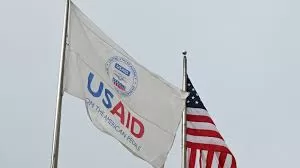Washington, D.C. – American-funded aid programs aimed at tackling tuberculosis (TB), malaria, newborn health, and severe malnutrition should resume immediately, according to a recently reviewed memo from the United States Agency for International Development (USAID). The memo, dated February 4 and cleared by email on February 6, calls for the urgent continuation of lifesaving activities within the next 30 days.
The directive comes after President Donald Trump’s decision last month to freeze international aid pending a 90-day review, which left many organizations uncertain about the status of their programs. Although Secretary of State Marco Rubio issued a waiver stating that lifesaving aid was exempt from the freeze, confusion persisted among aid groups on the ground.
Clarification on Health Priorities
The memo explicitly states that activities targeting TB, malaria, severe acute malnutrition, maternal and child mortality risks, and other critical health conditions must resume without delay. It also includes efforts to curb disease outbreaks such as mpox, avian flu, and Ebola, along with essential global health supply chain operations.
Despite this directive, USAID has yet to respond to requests for comment. Furthermore, some aid organizations remain uncertain about the specifics of which programs can restart and how funding will be allocated, given the administrative setbacks caused by the freeze.
Concerns Over Delays and Execution
Martin Edlund, CEO of the Washington-based non-profit Malaria No More, acknowledged the significance of the memo but emphasized the need for swift action.
“Even short-term interruptions of malaria prevention and treatment lead to outbreaks and deaths,” he warned. While the memo provides crucial guidance, Edlund stated that formal ‘start-work’ orders are necessary to initiate critical operations, such as indoor spraying, net distribution, and malaria treatment programs.
Adding to the clarifications, a separate memo dated February 6 further elaborated on exemptions for the President’s Emergency Plan for AIDS Relief (PEPFAR). It highlighted that programs focused on the prevention of mother-to-child HIV transmission should be resumed as soon as possible.
While the memo signals a step toward stability, concerns remain regarding the logistical and financial hurdles aid organizations face in promptly resuming operations.
Disclaimer: This article is based on information provided by Reuters and does not reflect any official statements from USAID or the U.S. government. The situation is evolving, and further clarifications may emerge.











